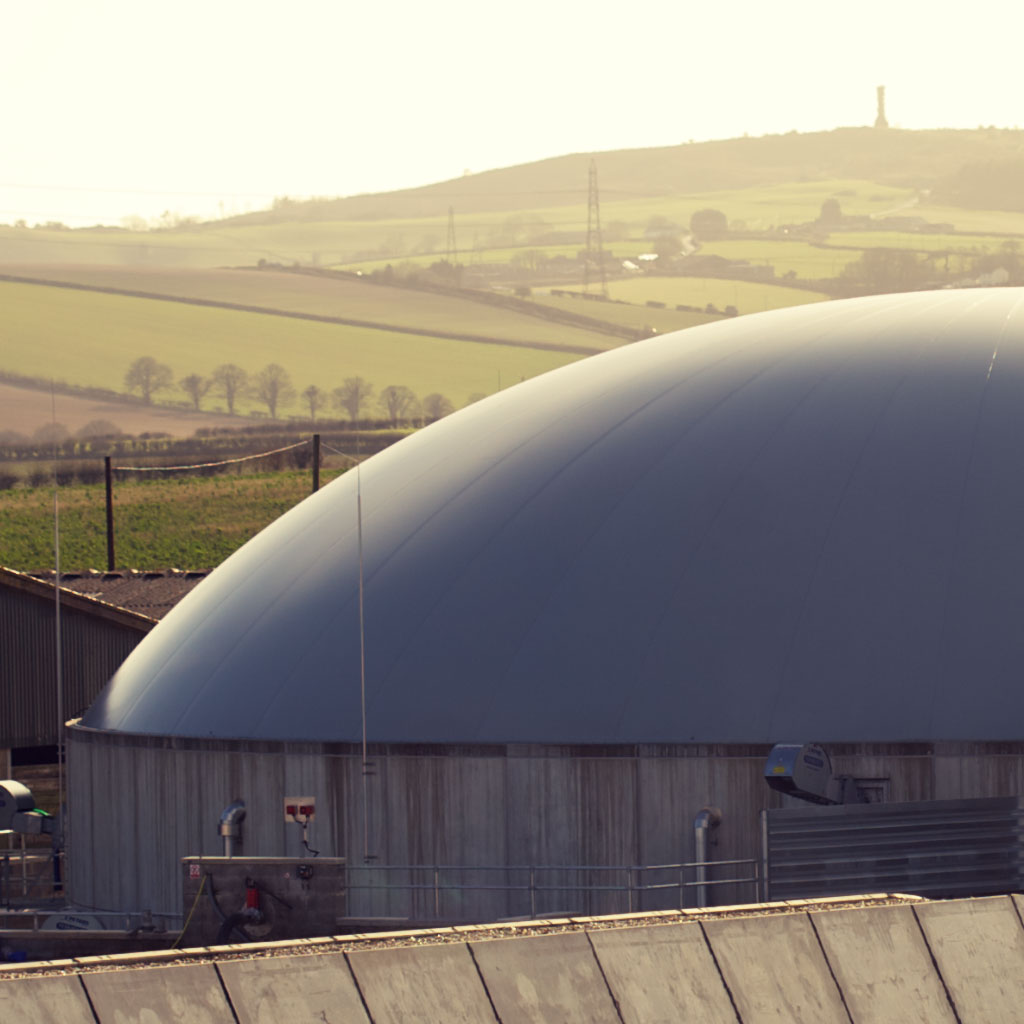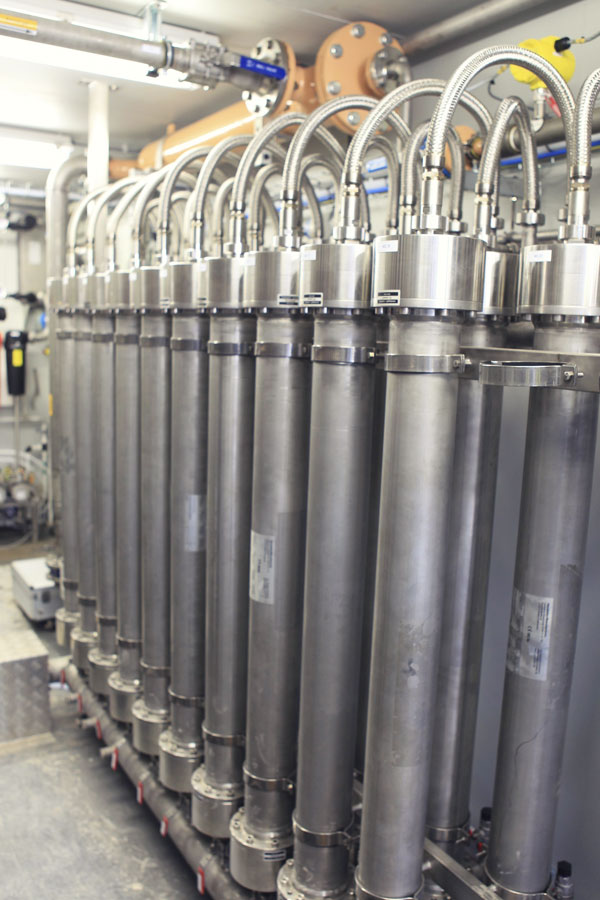The Duchy of Cornwall makes considerable investments in renewable energy. These include biomass, ground source and solar photovoltaic projects, which simultaneously serve as tangible examples of best practice, reduce the estate's carbon footprint, and generate income. In Dorset, The Duchy is a partner and lead investor in J V Energen LLP. This partnership has worked with local farmers to build and run the country's first full-scale anaerobic digester and biomethane-to-grid plant, which was opened by The Prince of Wales in November 2012.

The Anaerobic Digester at Poundbury
Anaerobic digestion is a natural process where, in the absence of oxygen, organic material like maize, grass and food waste is broken down by micro-organisms to produce methane-rich biogas. This is then used to generate renewable electricity – and also purified to produce biomethane, which is fed into the local gas distribution network.
An additional benefit of anaerobic digestion is a bi-product known as digestate, which can be used as organic fertiliser on arable crops. Digestate retains all the nutrients (nitrogen, phosphorus, and potassium) for fertilising local farmland, and acts as a good soil conditioner.

The project won the Environmental Impact Award at the 2013 Energy Innovation Awards run by the gas and electricity industry, and was praised for creating “a meaningful, lasting legacy on the energy network”. J V Energen also won the Leadership Award at the British Renewable Energy Association 2013 Awards.
The biomethane-to-grid plant produces a net carbon saving of around 4,435 tonnes of CO2 equivalent emissions per year. The plant is being upgraded in late 2019 to produce even more bioemethane, while specialist equipment is being installed to capture CO2, to be purified and sold to the food and drinks sector.
An additional benefit of anaerobic digestion is a bi-product known as digestate, which can be used as organic fertiliser on arable crops. Digestate retains all the nutrients (nitrogen, phosphorus, and potassium) for fertilising local farmland, and acts as a good soil conditioner. This is bagged and sold as Bloomin Amazing, which was runner-up at the Horticulture Week Business Awards 2019 in the New Business of the Year category, and runner-up at the AD & Biogas Industry Awards 2019 in the Clever Use of Outputs cateogry.
The Duchy of Cornwall Carbon Report is availble within the Integrated Annual Report.
Learn more about J V Energen here: http://www.jvenergen.co.uk/

We are proud to support the #TerraCarta from HRH The Prince of Wales’ Sustainable Markets Initiative.
Read more
The Duchy of Cornwall is committed to reaching net zero across its diverse portfolio.
Read more
The Duchy of Cornwall’s vision is Sustainable Stewardship – for Communities, Enterprise and Nature. The Duchy’s suppliers are instrumental in supporting us in achieving that vision, so we have implemented our Sustainable Procurement Policy which will inform our purchasing decisions and ongoing supplier relationships.
Read more